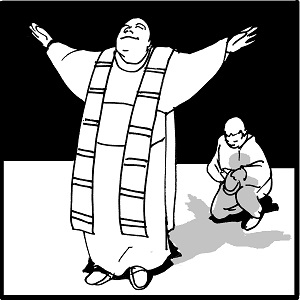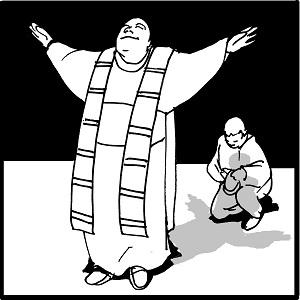
“Jesus addressed this parable to those who were convinced of their own righteousness and despised everyone else” (Luke18:9).
Thirtieth Sunday in Ordinary Time
Sir 35:12-14, 16-18; Ps 34; 2 Tm 4:6-8, 16-18; Lk 18:9-14
The Year of Mercy officially ended in November of 2016. We might ask just what Pope Francis hoped would happen to the church. How has the universal church responded to his message about God’s mercy? The call to mercy has permeated every other message he has advanced: The recovery of the joy of the Gospel; the primacy of love in promoting morality; a more pastoral approach to people struggling with the church’s ideals; greater humility on the part of clergy; parishes as field hospitals freely dispensing the “medicine of mercy”; evangelization that goes to the margins, where suffering and uncertainty are the greatest.
The message was both clear and challenging. Mercy places all of us before God -- including the pope himself -- as sinners. We are simply incapable by our own merits of "earning" the gift of salvation. The self-righteous and those who judge others have not begun to understand what God wants of them. When we stand apart from other people as superior, we separate ourselves from God.
Even if we have kept the rules and done everything perfectly, we still cannot claim eternal life with God as a reward. We are always mere creatures totally dependent on God for everything, including our virtue and our very existence. Only when we grasp the reality of hesed, God’s unconditional and undeserved love, will we know that the gift of mercy is free.
This is what the pope wants all of us to understand. God’s utter graciousness flows to us when we accept it and then pass it on to others. No one is in a superior position to judge another. No one can lord it over others or set conditions for God’s mercy. All are welcome. Jesus seeks out sinners and eats with them. The Good Shepherd goes looking for lost sheep. Jesus died for us while we were still sinners. Each of his hand-picked Apostles was a sinner who underwent conversion to find divine mercy.
Jesus’ parable of the Pharisee and the Publican captures and conveys this message perfectly. A proud, self-righteous perfectionist goes home clueless and untouched by mercy. A notorious sinner begging for grace goes home justified. We can easily apply these caricatures to others, but there is a trap in the story if we do this.
As with many other parables Jesus told comparing saints and sinners, the truth is that we are all both. Humility is the key to grasping this. If we are living a good life, it is because of mercy. If we are failures in need of conversion, mercy is always available and necessary. No one can judge another, for we are all in this together, pilgrims on the way to God because God has called us and is sustaining us on the way.
The Publican knows this, but the Pharisee does not, and only one will go home justified this day.







